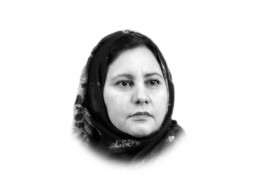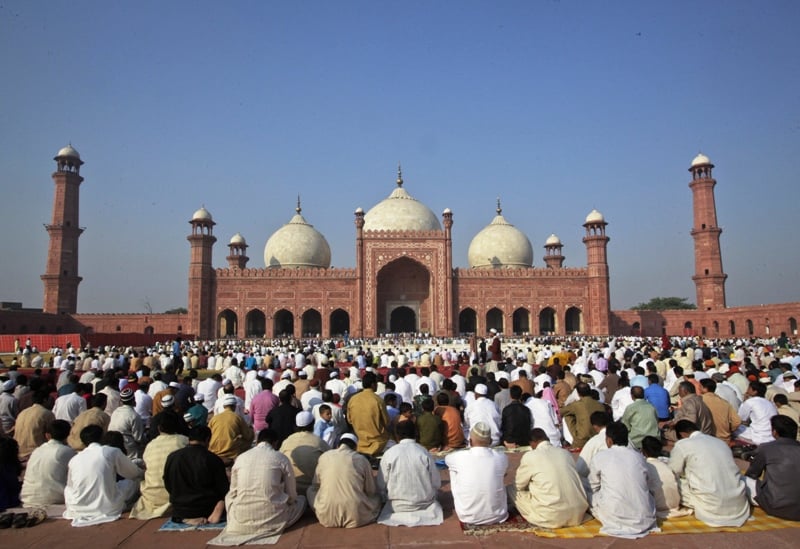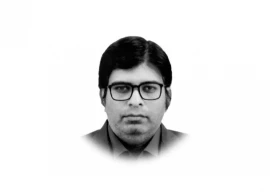
For over seven decades, Pakistan and the United States have shared a dynamic partnership characterised by mutual cooperation and shared goals. From the Cold War to the War on Terror, Pakistan's strategic location and role have been pivotal in advancing global security and diplomatic objectives. During the Cold War, Pakistan emerged as a key ally, aiding the US in countering Soviet expansion. The collaboration reached its zenith during the Afghan War of the 1980s, with Pakistan playing a central role in American efforts.
One of the most remarkable yet often overlooked contributions of Pakistan to the global diplomatic landscape was its role in facilitating the historic opening of US-China relations. In the early 1970s, as tensions between the US and the Soviet Union escalated, the Nixon administration sought to counterbalance Soviet power by reaching out to China. Pakistan became the critical conduit for this rapprochement. The leadership in Islamabad, particularly under President Yahya Khan, served as a trusted intermediary, arranging secret visits and communications between Washington and Beijing. This diplomatic breakthrough reshaped global geopolitics and underscored Pakistan's significance as a facilitator of dialogue and peace.
This historic event highlights the depth of trust between Pakistan and the US, showcasing Islamabad's capacity to act as a reliable partner in global diplomacy. The legacy of this cooperation underscores that Pakistan's contributions to the alliance go beyond immediate, transactional gains; they are rooted in a shared vision for global stability and peace.
Economic engagement between Pakistan and the US is another vital pillar of their relationship. The US remains one of Pakistan's largest export destinations, supporting industries ranging from textiles to IT services. This trade relationship is far from one-sided; it sustains jobs and benefits consumers in both nations. Pakistan's skilled labour and diverse offerings enrich the US market, while American technological leadership and investment drive progress in Pakistan. From textiles and apparel to agricultural products, sports goods and IT services, Pakistan's exports to the US reflect the breadth of its economic potential.
Yet, there is significant untapped potential in areas such as renewable energy, advanced manufacturing and cultural industries. Joint ventures and technology transfers can create new economic opportunities, leveraging Pakistan's youthful workforce and the innovation-driven American economy. By deepening economic ties, both nations can ensure shared prosperity and long-term stability.
The people-to-people connections between Pakistan and the US have also fostered mutual understanding and trust. Initiatives like the Fulbright Program have enabled thousands of Pakistanis to study in the US, while American academics and professionals have contributed to Pakistan's intellectual growth. The International Visitor Leadership Program and cultural platforms like American Centers in major Pakistani cities have further solidified these ties.
Cultural diplomacy has played a significant role in strengthening the bilateral relationship. American jazz musicians, such as Dizzy Gillespie and Dave Brubeck, performed in Pakistan during the 1950s, introducing Pakistani audiences to American culture and promoting goodwill. On the other hand, Pakistani cultural icons, including Nusrat Fateh Ali Khan and contemporary writers like Mohsin Hamid, have captivated American audiences, showcasing the richness of Pakistani heritage. Recent initiatives, such as Lincoln Corners and digital exchange programmes, have expanded the reach of cultural engagement. By promoting virtual cultural festivals, sports diplomacy and collaborations in art and cinema, both nations can foster deeper understanding and reduce stereotypes. These initiatives demonstrate that cultural exchange is a cornerstone of sustainable bilateral relations.
In an era marked by climate change, economic uncertainty and transnational threats, the Pakistan-US alliance offers solutions grounded in cooperation. As a nuclear state with a responsible stewardship record, Pakistan aligns with US interests in non-proliferation and global strategic stability. Moreover, Pakistan's ability to bridge cultural and political divides in the region underscores its value as a partner in addressing complex geopolitical challenges.
To move beyond the transactional narrative, both nations must deepen collaboration in emerging sectors. Expanding digital exchanges, promoting sports diplomacy and leveraging diaspora communities can strengthen ties. Collaborative efforts in heritage preservation and education, such as Urdu-English language programmes, will also enhance mutual appreciation.
As the world faces new challenges, including climate change and shifting power dynamics, the Pakistan-US alliance must evolve to address these complexities. The partnership is not merely a series of exchanges; it is a relationship built on shared history, values and aspirations. The success of US-China diplomacy facilitated by Pakistan is a testament to the enduring potential of this alliance. By embracing a vision of mutual benefit, Pakistan and the US can continue to forge a partnership that stands as a beacon of cooperation in an increasingly divided world.
Pakistan's geographic location at the crossroads of South Asia, Central Asia and the Middle East positions it as a critical partner for the US in addressing regional challenges. From countering extremism to fostering stability, Pakistan's role remains indispensable.




















COMMENTS
Comments are moderated and generally will be posted if they are on-topic and not abusive.
For more information, please see our Comments FAQ